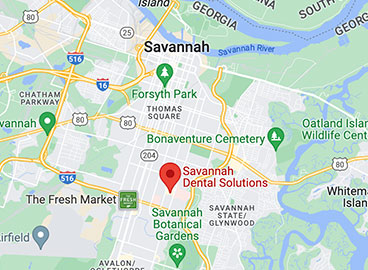
Treating TMJ disorder can be as easy as relaxing the jaw. And, with a little attention, the symptoms may just go away on their own. Unfortunately, though, this is not always the case. TMJ often requires attention – at home, with a medical professional, or by your dentist.
Here’s how it’s treated.
What is TMJ Disorder?
TMJ is short for Temporomandibular Joint, which is located where your jaw connects to your skull on each side of your head. For those who have been diagnosed with TMJ disorder, pain is felt in both the joint and the muscle that control the jaw’s movement.
The most common symptoms of TMJ disorder are:
- Finding it difficult to chew
- Pain when chewing
- Pain or soreness at the jawline
- Pain or soreness at one or both of the temporomandibular joints
- Ear aches in and around the ear
- Locked joint, inability to open and close the jaw
- Clicking sounds when opening and closing the jaw
Note: If you have never been diagnosed with TMJ disorder, but think you may have it, you should always seek the guidance of a professional.
Treating TMJ at Home
For mild cases of TMJ where pain is mild and uncomfortable, but not an interruption to your day, there are a few things you may want to try at home to treat the pain.
Apply Moist Heat
Joint pain often responds well to applying moist heat to the area. Just be sure that it is not too hot so you don’t burn your face.
Apply Ice or Cold
Ice is known to reduce inflammation and ease pain. Wrap ice in a towel and place on the joint for no more than 10 or 15 minutes.
Eat Soft Food
Eating hard foods can be harsh on the muscles and joints. Give your jaw a break by eating soft, blended food.
Relax Your Muscles
Practice deep breathing techniques and let your jaw loosen up. Your jaw will drop, your mouth and teeth will part, and you should begin to feel your facial muscles relax. Breathing slowly this way for a few minutes can offer incredible relief.
Trying some of these tips while taking over-the-counter pain reliever may offer you the relief from TMJ that you are looking for. However, if the pain is persistent or disruptive to your daily life, you should contact your dentist.
How Your Dentist Can Help
Dentists handle teeth, but they deeply understand the intricacy of the mouth as a whole, functional system. And this includes the temporomandibular joint responsible for this disorder. Your dentist may be able to assess your situation and even diagnose TMJ disorder. He or she may listen to and feel your jaw as you move it, as well as pay attention to your range of movement. X-Rays may also be used to determine your needs.
TMJ may be caused by different factors, such as injury and arthritis. But it is commonly due to issues with the alignment of the teeth and the jaw or clenching/grinding too often. While some may be better treated by a medical professional, the latter are all things that your dentist can help you with.
Treatment solutions frequently used by dentists for this disorder include using tools such as a bite plate, splint, or mouth guard. All of which can help those who suffer from TMJ due to clenching or grinding. For TMJ due to alignment issues, braces can often be used to realign the teeth. Sometimes physical therapy or equilibration and functional reconstruction may be considered.
Dentists can also offer other solutions that may offer relief of temporary, intermittent pain from TMJ disorder.
Your dentist will assess your personal situation and determine the best plan of treatment for you.
Visit Savannah Dental Solutions
Seeking dental treatment when you suffer from TMJ is a big step. At Savannah Dental Solutions, we understand what you are going through and we are here to help. Whether you are currently suffering with TMJ pain or you require extra precautions during dental procedures, we have the knowledge and expertise to provide you with the best care.
Contact our office at (912) 354-1366 or contact us online to schedule a consultation today.


